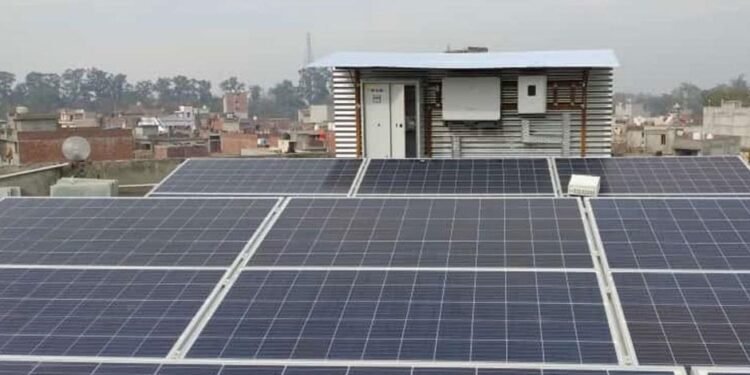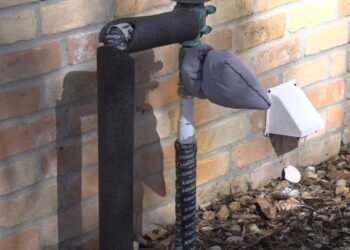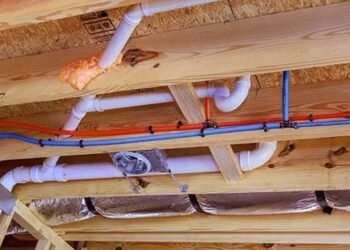Solar panels have become a prominent fixture on rooftops and landscapes, generating clean and renewable energy for homes and businesses. While these panels are designed to last for decades, many solar panel warranties propose a performance guarantee of 25 years or more. This raises questions about what happens after 25 years of solar panel usage. We will explore the expected lifespan of solar panels, considerations for panel maintenance, and potential scenarios post-25 years.
Efficiency of solar panels after 25 years:
1. Solar Panel Lifespan
Solar panels are engineered to have a long operational lifespan, often exceeding 25 years. The standard industry warranty for solar panels generally guarantees a minimum power output of 80% to 90% of their initial rating after 25 years. This means that after a quarter-century of use, solar panels should still be generating a substantial amount of electricity, albeit at a slightly lowered efficiency corresponded to their peak performance.
2. Decline in Energy Production
After 25 years, solar panels may exhibit a gradual decline in energy production. This decline is primarily due to the natural wear and tear of the photovoltaic cells, which can become less efficient over time. Elements such as temperature fluctuations, exposure to ultraviolet (UV) radiation, and environmental conditions can donate to this degradation.
3. Assessing Energy Production
To assess the energy production of solar panels after 25 years, homeowners and businesses can monitor their performance using the system’s monitoring software. Solar panel monitoring tools provide real-time data on energy generation, qualifying owners to compare the current output to the system’s initial performance. Any significant drop in energy production may indicate the requirement for maintenance or potential panel replacement.
4. Maintenance and Repairs
Proper maintenance and occasional repairs can extend the lifespan of solar panels beyond the 25-year mark. Routine maintenance includes cleaning the panels to remove dirt and debris, inspecting the wiring and connections, and checking for physical damage. Cleaning solar panels can significantly improve their efficiency, as dirt and dust on the panel’s surface can block sunlight and reduce energy generation.
In some cases, components such as inverters or wiring may require replacement during the panel’s lifetime. Regular inspections can help identify any issues that need attention. Homeowners and businesses should work with experienced solar technicians for maintenance and repairs to ensure that the system operates optimally.
5. Beyond 25 Years: Scenarios
Once solar panels surpass their 25-year warranty period, several scenarios may unfold:
- Continued Energy Production: Solar panels can continue to generate electricity well beyond their warranty period. While energy production may gradually decline, it is not uncommon for panels to stay operational for several decades.
- Energy Offset and Savings: Solar panels that have passed their warranty period can still offset electricity costs and contribute to energy savings. Homeowners and businesses can enjoy reduced energy bills while benefiting from clean and sustainable power.
- Upgrades and Replacement: Depending on advancements in solar technology and energy needs, some owners may choose to upgrade or replace their panels with newer and more efficient models. This can further enhance energy generation and savings.
- Recycling and Disposal: Proper disposal or recycling of solar panels is essential when they reach the end of their useful life. Solar panel recycling programs are emerging to manage the disposal of aging panels in an environmentally responsible manner.
6. Environmental Impact
The environmental impact of aging solar panels is a growing concern as the number of panels in circulation continues to rise. Proper disposal and recycling are paramount to underrate the environmental footprint of retired panels. Solar panel recycling involves recovering valuable materials such as silicon, aluminum, and glass, which can be reused in the manufacturing of new panels or other products. Recycling efforts aim to reduce waste and minimize the environmental impact of retired solar panels.
7. Emerging Technologies
Advancements in solar panel technology are ongoing, and newer panels often propose enhanced efficiency and durability compared to older models. For those looking to substitute aging solar panels, exploring the latest technologies can result in a more efficient and cost-effective system. Emerging technologies may include higher-efficiency solar cells, enhanced anti-reflective coatings, and innovative panel designs.
Solar panels are built to last and continue generating clean energy for many years, often well beyond their 25-year warranties. Proper maintenance and potential upgrades can further extend their lifespan and energy production capabilities. As solar technology continues to advance, homeowners and businesses have opportunities to enhance their solar panel systems and contribute to a more sustainable and environmentally responsible energy future. Ultimately, the decision regarding the fate of solar panels in NC after 25 years rests with the owner, who can choose to continue benefiting from clean energy, explore upgrades, or responsibly recycle retired panels to minimize their environmental impact.












